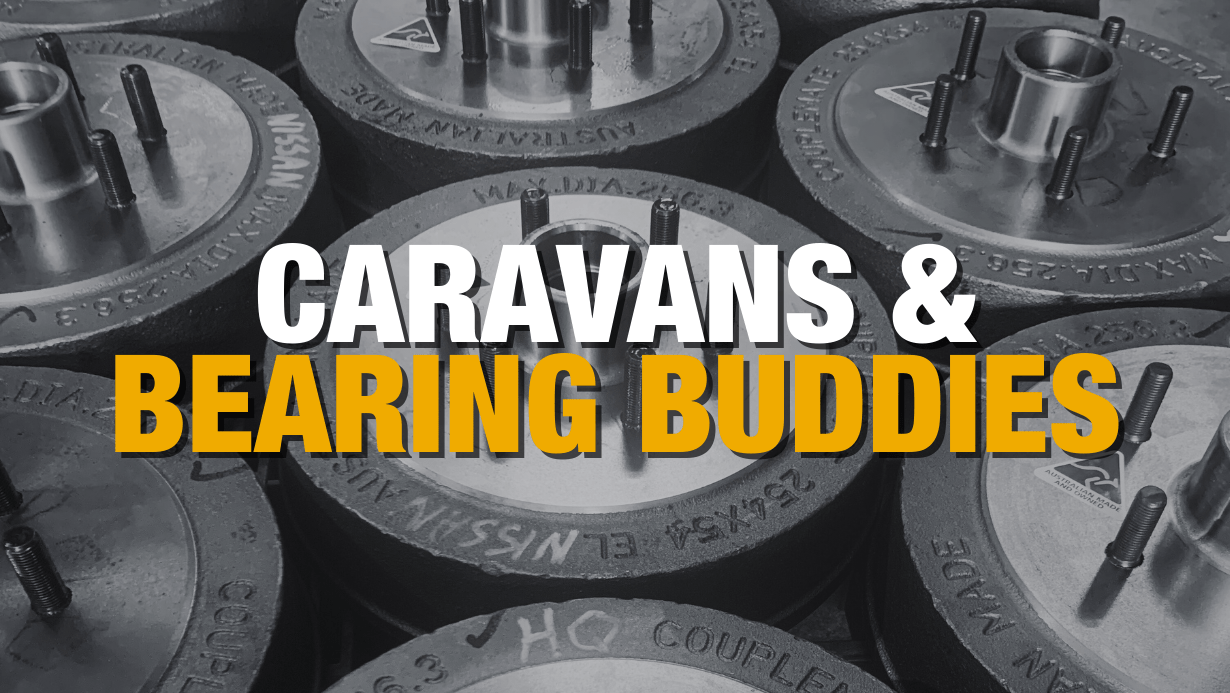Installing bearing buddies on your caravan can have unintended consequences such as destroying your braking system.
We understand the desire to equip your rigs with the latest time-saving accessories. However, we at Couplemate wish to shed light on the potential unintended consequences that may arise from the installation of bearing buddies, specifically in relation to your braking system.
When bearing buddies are installed on your caravan, there exists a risk of detrimental effects, such as compromising the functionality of your braking system. While a properly adjusted brake drum is instrumental in swiftly halting your rig, certain circumstances can lead to unforeseen accidents.
A prime example can be seen in the image provided, displaying a Dexter backing plate designed for a 12″ Electric Drum. The repercussions of the bearing buddy installation are evident in the considerable disruption caused to the brakes. The excessive grease that escaped from the rear bearing seal into the backing plate has led to complications.
This issue extends beyond mere grease spillage onto brake shoes and internal equipment within the backing plate. The magnet’s ability to effectively adhere to the drum face has been compromised due to grease overflow. Consequently, this compromises the braking capacity significantly. Moreover, irregularities on the magnet surface further contribute to ineffective braking.
At Couplemate, we strongly advise against the installation of bearing buddies on electric brakes. Such equipment is better suited for use on boat trailers and box trailers that either utilize disc brakes or remain unbraked.
The detrimental impact of bearing buddies isn’t confined to a specific type of brake system; it affects mechanical, hydraulic, and electric drum brakes alike. Misuse of bearing protectors can lead to the failure of drum brakes, necessitating caution during installation.
To ensure optimal functionality of your wheel bearings, we recommend a manual inspection. Alternatively, rubber grommet dust caps can provide insights into any potential grease contamination by revealing discolored grease upon their removal.
Should you notice any evidence of brake shoe contamination due to bearing buddies, immediate replacement of the affected shoes is recommended. Please note that cleaning the brake shoes will not enhance braking effectiveness as the grease tends to permeate the entire shoe material.
We prioritize your safety and the efficiency of your caravan or camper, and hence, urge you to consider these insights when contemplating equipment modifications or replacements.
Need Replacement Dust Caps?
- 45.2mm Standard Dust Cap
- 2t – Parallel Gal Australian Dust Cap
- 1.98″ Dexter Dust Cap
- 2.441″ Dexter Dust Cap Suit 2t

A hub full of grease will overheat the bearings as well.
Hello Barry, I had not considered your comment before and made me think for a while. A hub full of grease will be expelled as pressure rises inside the hub from high-speed rotation before critical over temperates occur inside the hub. This pressure inside the hub can be as high as 2 – 3 psi @ 100 kph. Bearings do not overheat during this process. Bearings overheat due to wear and tear of the casting ring and rollers, incorrectly adjusted bearings and poor quality bearings. I have never seen any evidence of overheated bearings as a result of an overloading grease into a hub.
Marine seals can also cause a similar problem.
Hello Ian and thank you for your comment,
Marine seals expel excess grease to the road or inside the wheel rim. It is uncommon to find backing plates in a marine environment where marine seals are used. A marine seal has no real purpose in the electric, mechanical or hydraulic backing plates. More is best does not apply to grease. In the day of DIY, simple mistakes occur. Professionals, on the other hand, should know better and remedy their errors at their expense. Thank you for your comment, Ian. Steve Wotherspoon